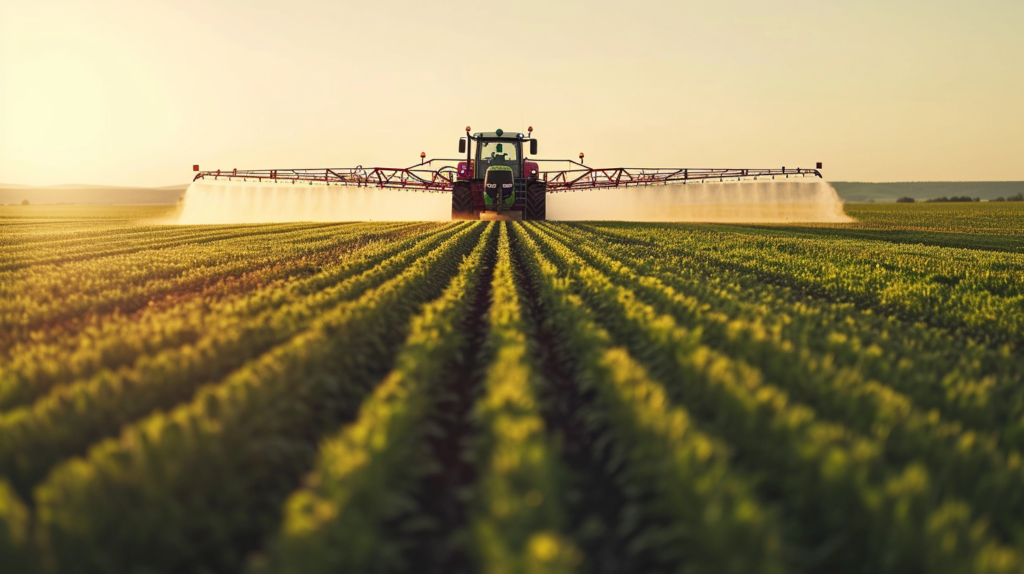In our pursuit of a healthier lifestyle, the debate between organic and conventional foods is more relevant than ever. Understanding the key differences is crucial in making informed choices. In this blog, we delve into three fundamental aspects where organic foods, aligned with our evolutionary needs, distinctly outperform their conventional counterparts.

1. Nutritional Superiority of Organic Foods
Organic Means More Nutrients: Studies have shown that organic produce often contains higher levels of certain nutrients compared to their conventional counterparts. For instance, organic fruits and vegetables are found to have higher concentrations of antioxidants. These natural compounds are pivotal in combating oxidative stress, a factor implicated in various chronic diseases. The enhanced nutrient profile in organic foods can be attributed to the absence of synthetic fertilizers in organic farming. Plants grown organically tend to produce more phytochemicals (like antioxidants) as defense mechanisms, which in turn benefit our health.
Rich in Beneficial Fats: When it comes to animal products, organic is especially superior. Organic meat, for example, has a better ratio of omega-3 to omega-6 fatty acids. This balance is crucial for reducing inflammation in the body. Conventional meat, often sourced from animals fed on grain-based diets, tends to have higher levels of omega-6 fatty acids, promoting inflammatory processes. In contrast, organic meat comes from animals that graze on natural pastures, leading to a healthier fat profile, which is more in tune with our evolutionary dietary needs.
Free from Harmful Additives: Organic foods, by definition, are free from artificial additives, preservatives, and flavorings. These artificial substances, often found in conventional foods, can have adverse effects on our health. Studies link certain food additives to health issues like digestive disorders and even behavioral problems. By choosing organic, we align our diet more closely with how our ancestors ate, thus supporting our body’s natural functions.
2. Absence of Pesticides and Chemicals
Reduced Chemical Exposure: Conventional agriculture relies heavily on chemical pesticides and herbicides, residues of which are often found on the produce. These chemicals, such as glyphosate, have been linked to a range of health issues including hormonal imbalances and increased cancer risk. Organic farming, on the other hand, uses natural methods for pest control, significantly reducing our exposure to these harmful substances. By opting for organic, we embrace a diet that is not only more natural but also safer, reflecting the purity of foods available to our ancestors.
Beneficial for Gut Health: The absence of pesticides in organic foods also has a positive impact on our gut microbiome. The gut flora, essential for various bodily functions, can be negatively affected by the chemicals in conventional foods. Organic foods support a healthier and more diverse gut microbiome, aligning with our evolutionary dietary habits which were free from synthetic chemicals.


3. Environmental Impact
Sustainable Farming Practices: Organic farming is not just beneficial for our health but also for the environment. These practices emphasize soil health, biodiversity, and ecological balance. Conventional farming methods, in contrast, often lead to soil degradation, water contamination, and a decrease in biodiversity. By choosing organic, we support farming practices that are more in harmony with nature, just as our ancestors lived in balance with their environment.
Reduced Carbon Footprint: Organic farming typically has a lower carbon footprint compared to conventional farming. The absence of synthetic fertilizers and chemicals means less energy is used in production. Additionally, organic farming practices often involve carbon sequestration – capturing carbon in the soil, which is a critical factor in combating climate change.
The differences between organic and conventional foods are substantial, impacting not only our health but also the environment. By choosing organic, we align our diets with our evolutionary needs, ensuring a nutrient-rich, chemical-free, and environmentally sustainable food source. Embracing organic is a step towards living in the way we are optimally designed to live, echoing the practices of our ancestors while supporting our health and the health of our planet.